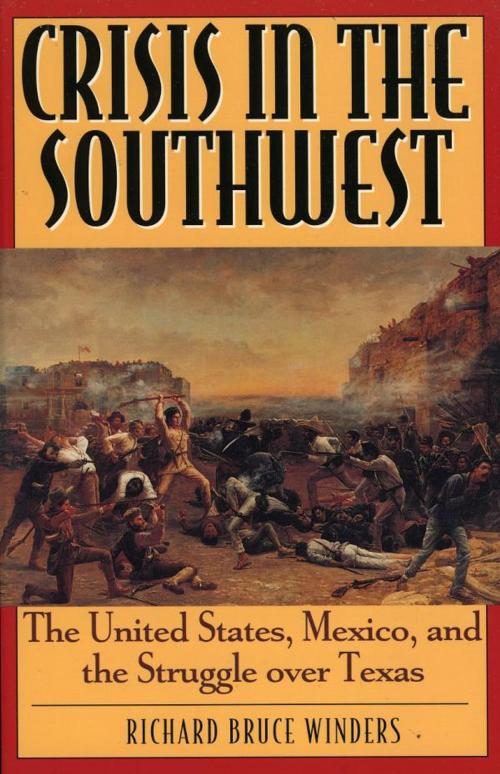Crisis in the Southwest
The United States, Mexico, and the Struggle over Texas
Nonfiction, History, Americas, United States, Civil War Period (1850-1877), 19th Century| Author: | Richard Bruce Winders | ISBN: | 9780742575646 |
| Publisher: | Rowman & Littlefield Publishers | Publication: | March 1, 2002 |
| Imprint: | Rowman & Littlefield Publishers | Language: | English |
| Author: | Richard Bruce Winders |
| ISBN: | 9780742575646 |
| Publisher: | Rowman & Littlefield Publishers |
| Publication: | March 1, 2002 |
| Imprint: | Rowman & Littlefield Publishers |
| Language: | English |
The war between the United States and Mexico was decades in the making. Although Texas was an independent republic from 1836 to 1845, Texans retained an affiliation with the United States that virtually assured annexation at some point. Mexico's reluctance to give up Texas put it on a collision course with the United States. The Mexican War receives scant treatment in books. Most historians approach the conflict as if it were a mere prelude to the Civil War. The Mexican cession of 1848, however, rivaled the Louisiana Purchase in importance for the sheer amount of territory acquired by the United States. The dispute over slavery-which had been rendered largely academic by the Missouri Compromise-burst forth anew as Americans now faced the realization that they must make a decision over the institution's future. The political battle over the status of slavery in these new territories was the direct cause of the Crisis of 1850 and ignited sectional differences in the decade that followed. In Crisis in the Southwest: The United States, Mexico, and the Struggle over Texas, Richard Bruce Winders provides a concise, accessible overview of the Mexican War and argues that the Mexican War led directly to the Civil War by creating a political and societal crisis that drove a wedge between the North and the South. While on the surface the enemy was Mexico, in reality Americans were at odds with one another over the future of the nation, as the issue of annexation threatened to upset the balance between free and slave states. Winders also explains the military connections between the Mexican War and Civil War, since virtually every important commander in the Civil War-including Lee, Stonewall Jackson, Grant, McClellan, and Longstreet-gained his introduction to combat in Mexico. These connections are enormously significant to the way in which these generals waged war, since it was in the Mexican War that they learned their trade. Crisis in the Southwest provides readers with a clear understanding of the Mexican War and its relationship to the chain of events that ultimately led to the Civil War.
The war between the United States and Mexico was decades in the making. Although Texas was an independent republic from 1836 to 1845, Texans retained an affiliation with the United States that virtually assured annexation at some point. Mexico's reluctance to give up Texas put it on a collision course with the United States. The Mexican War receives scant treatment in books. Most historians approach the conflict as if it were a mere prelude to the Civil War. The Mexican cession of 1848, however, rivaled the Louisiana Purchase in importance for the sheer amount of territory acquired by the United States. The dispute over slavery-which had been rendered largely academic by the Missouri Compromise-burst forth anew as Americans now faced the realization that they must make a decision over the institution's future. The political battle over the status of slavery in these new territories was the direct cause of the Crisis of 1850 and ignited sectional differences in the decade that followed. In Crisis in the Southwest: The United States, Mexico, and the Struggle over Texas, Richard Bruce Winders provides a concise, accessible overview of the Mexican War and argues that the Mexican War led directly to the Civil War by creating a political and societal crisis that drove a wedge between the North and the South. While on the surface the enemy was Mexico, in reality Americans were at odds with one another over the future of the nation, as the issue of annexation threatened to upset the balance between free and slave states. Winders also explains the military connections between the Mexican War and Civil War, since virtually every important commander in the Civil War-including Lee, Stonewall Jackson, Grant, McClellan, and Longstreet-gained his introduction to combat in Mexico. These connections are enormously significant to the way in which these generals waged war, since it was in the Mexican War that they learned their trade. Crisis in the Southwest provides readers with a clear understanding of the Mexican War and its relationship to the chain of events that ultimately led to the Civil War.















